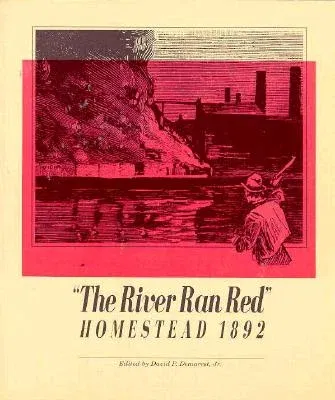The violence that erupted at Carnegie Steel's giant Homestead mill near
Pittsburgh on July 6. 1892, caused a congressional investigation and
trials for treason, motivated a nearly successful assassination attempt
on Frick, contributed to the defeat of President Benjamin Harrison for a
second term, and changed the course of the American labor movement.
"The River Ran Red" commemorates the one-hundredth anniversary of the
Homestead strike of 1892. Instead of retelling the story of the strike,
it recreates the events of that summer in excerpts from contemporary
newspapers and magazines, reproductions of pen-and-ink sketches and
photographs made on the scene, passages from the congressional
investigation that resulted from the strike, first-hand accounts by
observers and participants, and poems, songs, and sermons from across
the country. Contributions by outstanding scholars provide the context
for understanding the social and cultural aspects of the strike, as well
as its violence.
"The River Ran Red" is the collaboration of a team of writers,
archivists, and historians, including Joseph Frazier Wall, who writes of
the role of Andrew Carnegie at Homestead, and David Montgomery, who
considers the significance of the Homestead Strike for the present. The
book is both readable and richly illustrated. It recalls public and
personal reactions to an event in our history who's reverberations can
still be felt today.

